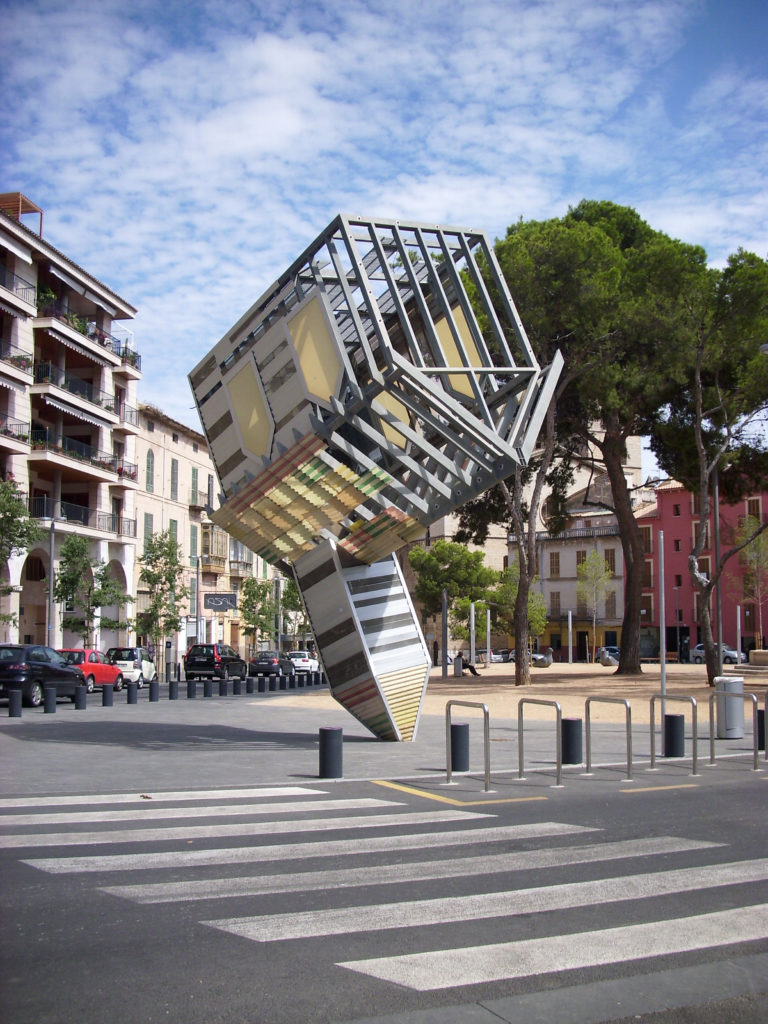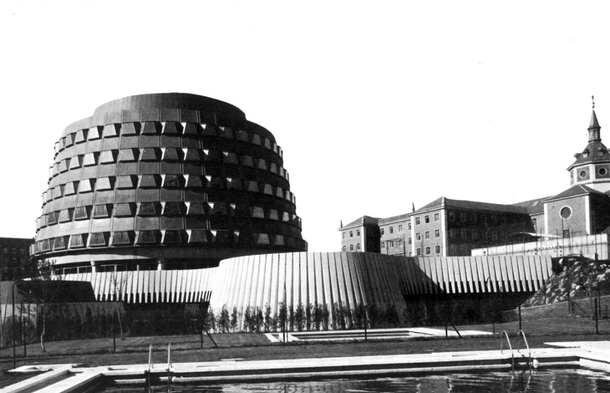The riot is in full swing and Paul is being blamed for the downturn in business. There is a untied protest of ‘No’ to Paul’s influence from the artisans whose profits are being threatened:
A certain silversmith, Demetrius, conducted a brisk trade in the manufacture of shrines to the goddess Artemis, employing a number of artisans in his business. He rounded up his workers and others similarly employed and said, “Men, you well know that we have a good thing going here—and you’ve seen how Paul has barged in and discredited what we’re doing by telling people that there’s no such thing as a god made with hands. A lot of people are going along with him, not only here in Ephesus but all through Asia province. Not only is our little business in danger of falling apart, but the temple of our famous goddess Artemis will certainly end up a pile of rubble as her glorious reputation fades to nothing. And this is no mere local matter—the whole world worships our Artemis!”
Paul, being who he is, takes it on himself to sort it out and says he will go in to the midst of the riot and calm things down. Whether this was a faith, or simply a personality, response we don’t know but his optimism was not shared by his merry band, who strongly insisted he did not risk his life. We read that their response is to strongly oppose him:
the disciples would not let him.
Thus far understandable, then comes the amazing part which Luke precedes his description with the word ‘even’ indicating that what we are about to read is a surprise:
even some officials of the province of Asia, who were friendly to him [Paul], sent him a message urging him not to venture into the theater.
I moved away from quoting the Message which translates the term ‘Asiarchs’ as religious leaders. They did have responsibilities connected to religion, but their involvement in that was because they were in positions of influence over the city (polis, hence political) and region. I note that Luke does not include them as ‘disciples’ but as friends of Paul. These are non-believers whose city is in turmoil because of Paul’s message. Further, his message is undermining of their position, so they do not have vested interest in Paul’s survival, the one who has come to town and upset the well-ordered apple cart. They have potentially a lot to lose if Paul continues with his Gospel / political (‘polis’ re-orientating) message.
These Asiarchs have not got hold of the ‘through Jesus you need to get saved’ part of Paul’s message, or if they have they have not accepted that part, but somehow they have seen or heard enough to realise that Paul’s message contained the hope for the future. However good the city was now, they somehow had grasped that the implications of Paul’s Gospel would so impact society that it would bring about positive outcomes, even if maintaining their own position was put in jeopardy.
This indicates some incredible challenges for us as 21st century believers:
- The gospel that Paul proclaimed had serious implications for the ordering of society.
- He articulated that part sufficiently to make an impact on political / social leaders.
- His message was centred on Jesus, though not all grasped the need for ‘personal salvation’.
- He was friends with those in society. They were not simply there as fodder for an evangelistic course.
- I extrapolate (and this is consistent with the call of Israel / the call of the church as royal priesthood for the world) that the church was present in the city to facilitate those finding space who needed it. It was not about the church being the highest mountain, nor about there being mountains of influence, but the church taking the servant role to ensure a re-orientation toward the low parts being raised up… and the mountains brought down.
Ironically a turning point in a city is when there are those who don’t get the message but get the message!! Now we have to work out what the message would be that they need to get. This is why it seems there is such a push toward re-grasping and re-framing the Gospel message, that has been imprisoned within piety and / or law court language (i.e. privatised faith that draws simple in/out lines).
A final footnote… The town clerk stands up and his final words to Demetrius and his rioting friends are:
If there is anything further you want to know, it must be settled in the regular assembly.
Or in the words of the Message (with my emphasis in bold):
If anything else is bothering you, bring it to the regularly scheduled town meeting and let it be settled there.
Or to pull out the Greek text:
Bring it TO THE EKKLESIA.
The regular word used for the city council, the ekklesia of the city. To suggest that NT language is not political (city related) is to miss so much of what is going on.
I suggest Ephesus is a strong paradigm to understand the implications and application of the Gospel. Ecomonics, riots, friends who are not believers but have grasped the political element. Disciples who see the world as God’s world, and the ekklesia in Jesus there for the sake of the future re-orientation of the polis.







